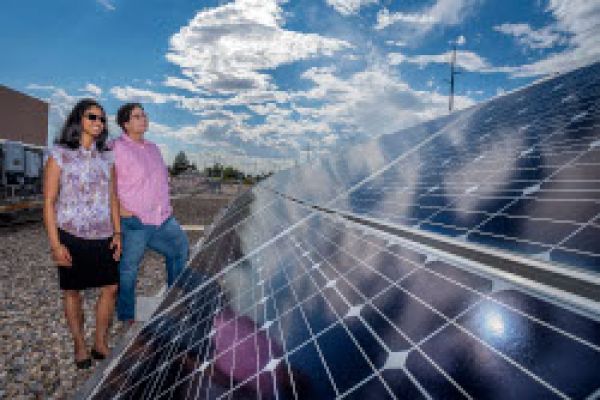Sandia National Laboratories researchers combined large sets of real-world solar data and advanced machine learning to study the impacts of severe weather on U.S. solar farms, and sort out what factors affect energy generation. Their results were published earlier this month in the scientific journal Applied Energy.
Hurricanes, blizzards, hailstorms and wildfires all pose risks to solar farms both directly in the form of costly damage and indirectly in the form of blocked sunlight and reduced electricity output. Two Sandia researchers scoured maintenance tickets from more than 800 solar farms in 24 states and combined that information with electricity generation data and weather records to assess the effects of severe weather on the facilities. By identifying the factors that contribute to low performance, they hope to increase the resiliency of solar farms to extreme weather.
“Trying to understand how future climate conditions could impact our national energy infrastructure, is exactly what we need to be doing if we want our renewable energy sector to be resilient under a changing climate,” said Thushara Gunda, the senior researcher on the project. “Right now, we’re focused on extreme weather events, but eventually we’ll extend into chronic exposure events like consistent extreme heat.”
Read more at: Sandia National Laboratories
Sandia National Laboratories researchers Thushara Gunda, front, and Nicole Jackson examine solar panels at Sandia’s Photovoltaic Systems Evaluation Laboratory as summer monsoon clouds roll by. Using machine learning and data from solar farms across the U.S., they uncovered the age of a solar farm, as well as the amount of cloud cover, have pronounced effects on farm performance during severe weather. (Photo Credit: Randy Montoya)


